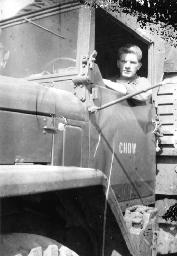









 The war has been all over for more than 60 years, but obviously not for all
of us. The roar of guns died away, but the Cold War which set in immediately
after the Great Patriotic War, also took its toll. Many fell victim of the
continuous hostile relations between the West and the USSR. Thousands of
Americans and Englishmen, who returned from German war captivity in 1945, got
into Soviet camps, hundreds, who had just come back from Vietnam and Korea, were
turned over to the Siviet state in the 1950s and 1960s.
The war has been all over for more than 60 years, but obviously not for all
of us. The roar of guns died away, but the Cold War which set in immediately
after the Great Patriotic War, also took its toll. Many fell victim of the
continuous hostile relations between the West and the USSR. Thousands of
Americans and Englishmen, who returned from German war captivity in 1945, got
into Soviet camps, hundreds, who had just come back from Vietnam and Korea, were
turned over to the Siviet state in the 1950s and 1960s.
The hostages of Stalin’s political game against the allied forces were to bear the same hard lot as millions of Soviet victims of repression. Many of those, who were isolated from their home country, who were deprived of the possibility to receive parcels from their family members, who had to subsist on tiny, puny food rations, with which the GULAG system was keeping them alive, died undermiserable conditions now resting in anonymous graves. However, eye witnesses report that some of these unfortunate people managed to survive the Soviet torture chambers. After their release they obtained Russian citizenship, assumed a Russian first and surname and then settled down not far from those places, where they had been forced to serve their sentences without any legal course. The American Ron van Wiz, for instance, was working as a tractorist near the Turinsk base of culture and awareness training in 1959. Eye witnesses saw him in Kalkan, Mui, Kuskama and Chara, Vitimo-Olinsk Region. We do not know, under which name he lived there, but it was not difficult at all to recognize this tall beanpole (he was more than 2 meters in height), who was talking with an accent. Were is he today? Does he have children?
Historics who are presently working on a documentary film for the German ZdF TV channel are also dealing with these questions. Dirk Pohlmann, initiator of the project, which will bear the title “Missing in action …” does not merely turn his attention to the legal aspects and the former policy of deceit and fraudulent concealment of facts in both camps during the time of the “cold” opposition, but also on human factors, individual fates and personally experienced history.
The search process started by international and social organizations after the Perestroika, is being continued nowadays. Just due to the state policy of conciliation and the preparedness of open dialogues with the western countries, they managed to learn about the fates of a number of foreigners, who were said to be missing, nmake them revive in the press and give their families sureness, even though this might be connected to a bitter truth.
Archival work is always based on the evidence of people who lived in a certain epoch, for a single isolated case, which someone might recall, also represents a piece of history, a piece of the past or its reflectance in just this very personal fate. For this reason the author of the documentary film directs himself to the readers of the “Krasnoyarsk Worker” asking them to contact the editorial staff, in case anybody can give information on the biography of Ron van Wiz in Russia or facts about the present residence of his descendants in Krasnoyarsk Territory. The photo was taken in 1944 shortly before his departure for the second front.
We are also very interested in other facts and memoirs, connected to the fate of POWs from the USA and England.
Inna Genschow, responsible co-worker (archival research), Mainz, Germany
On the picture: the American Ron van Wiz
“Krasnoyarsk Worker”, 03.11.2006